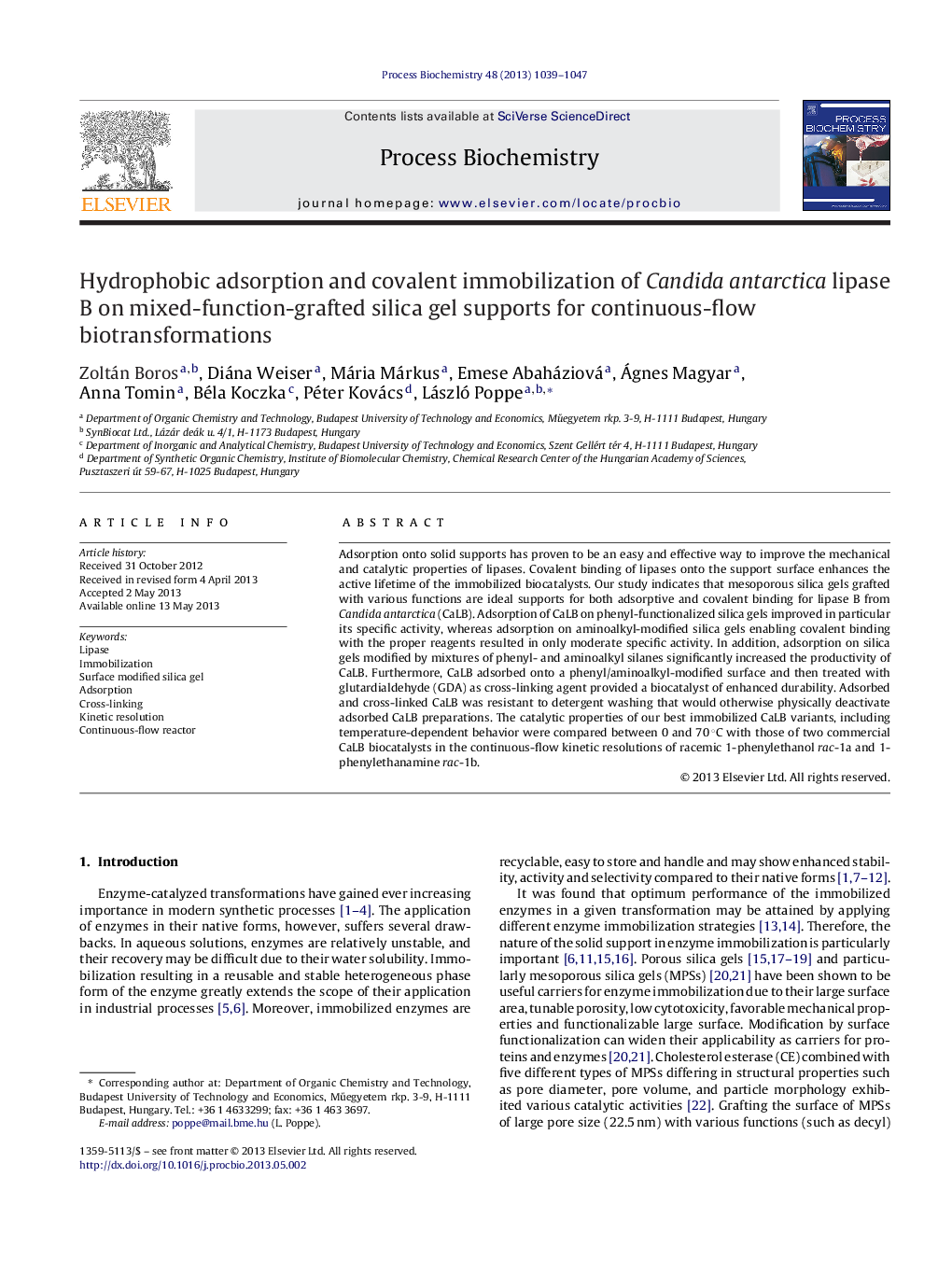| Article ID | Journal | Published Year | Pages | File Type |
|---|---|---|---|---|
| 10235371 | Process Biochemistry | 2013 | 9 Pages |
Abstract
Adsorption onto solid supports has proven to be an easy and effective way to improve the mechanical and catalytic properties of lipases. Covalent binding of lipases onto the support surface enhances the active lifetime of the immobilized biocatalysts. Our study indicates that mesoporous silica gels grafted with various functions are ideal supports for both adsorptive and covalent binding for lipase B from Candida antarctica (CaLB). Adsorption of CaLB on phenyl-functionalized silica gels improved in particular its specific activity, whereas adsorption on aminoalkyl-modified silica gels enabling covalent binding with the proper reagents resulted in only moderate specific activity. In addition, adsorption on silica gels modified by mixtures of phenyl- and aminoalkyl silanes significantly increased the productivity of CaLB. Furthermore, CaLB adsorbed onto a phenyl/aminoalkyl-modified surface and then treated with glutardialdehyde (GDA) as cross-linking agent provided a biocatalyst of enhanced durability. Adsorbed and cross-linked CaLB was resistant to detergent washing that would otherwise physically deactivate adsorbed CaLB preparations. The catalytic properties of our best immobilized CaLB variants, including temperature-dependent behavior were compared between 0 and 70 °C with those of two commercial CaLB biocatalysts in the continuous-flow kinetic resolutions of racemic 1-phenylethanol rac-1a and 1-phenylethanamine rac-1b.
Related Topics
Physical Sciences and Engineering
Chemical Engineering
Bioengineering
Authors
Zoltán Boros, Diána Weiser, Mária Márkus, Emese Abaháziová, Ágnes Magyar, Anna Tomin, Béla Koczka, Péter Kovács, László Poppe,
